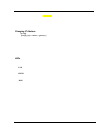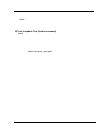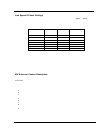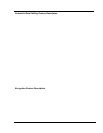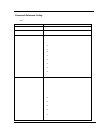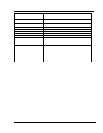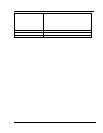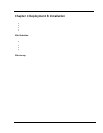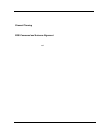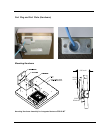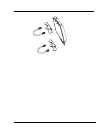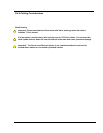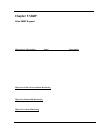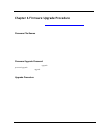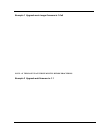
Deployment & Installation Site Selection
Trango Broadband Wireless — Atlas5010 page 26
Chapter 4 Deployment & Installation
Once you are familiar with the basic operation of the radios you are ready for deployment in the field. The deployment process
consists of the following steps:
• Site Selection
• Site survey at MU and RU sites
• MU installation
• RU installation and antenna alignment
• Link test
Site Selection
Proper site selection for your MU will help ensure a successful deployment. Site selection will depend on a wide variety of
factors, but from the radio’s performance standpoint, please consider the following:
• Path from MU to RU should provide unobstructed line-of-sight (LOS), thus it is advisable to place MU as high as
possible on a tall building or tower.
• Ethernet cable limit is 100 meters from Ethernet device (router, switch) to radio.
• Radios should never be deployed without proper grounding.
• Consider nearby sources of interference that could degrade the performance of the radio. Mount radios as far from
sources of interference as possible.
Site survey
The radios provide an on-board site survey tool which measures the average and peak noise levels on any given channel.
To use the survey tool, the radio must be in Opmode “OFF.” The survey can be performed for any specified amount of
time (in seconds), and for specific channels or for all channel/antenna polarization combinations.
Prior to performing the site survey, place the radio in the installation spot, and aim the radio in the desired direction.
The survey command will display the average and peak noise floor for each channel as well as average and peak RSSI
received during the same period for 802.11 packets.
Users may run any of the following variations of the survey command:
survey display noise floor for current channel based on 10 second scan.
survey [<sec>] display noise floor for current channel for period <sec> 10..3600 seconds
survey <sec> all display noise floor for all available channels where <sec> = period per channel
survey <sec> [<ch#> [..]] display noise floor for selected channels (max 4) where <sec> = period per channel
<ch#> = channel number
Example:
#> survey 10 all
#> survey 10 all
Press 'q' to stop.
noise floor (peak/avg dBm) rssi by pkt (peak/avg dBm)
Ch 19 h 5735 : -72 / -95 n/a / n/a
Ch 19 v : -73 / -95 n/a / n/a
Ch 20 h 5755 : -93 / -97 n/a / n/a
Ch 20 v : -96 / -98 n/a / n/a
Ch 21 h 5775 : -68 / -98 n/a / n/a
Ch 21 v : -74 / -98 n/a / n/a
Ch 22 h 5795 : -87 / -98 n/a / n/a
Ch 22 v : -96 / -98 n/a / n/a



